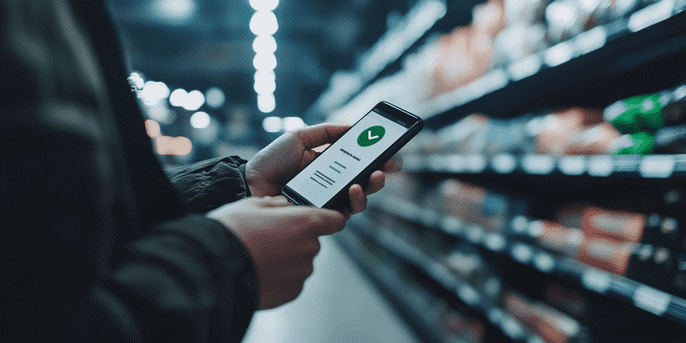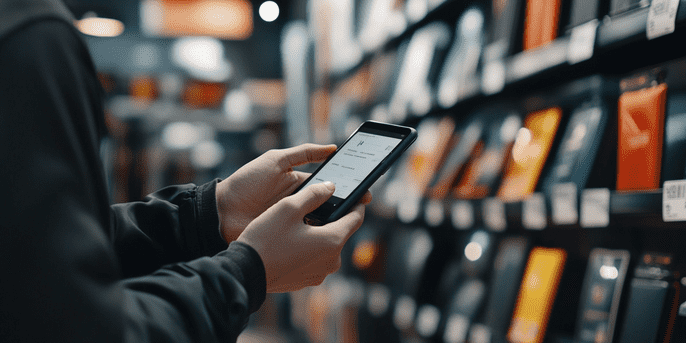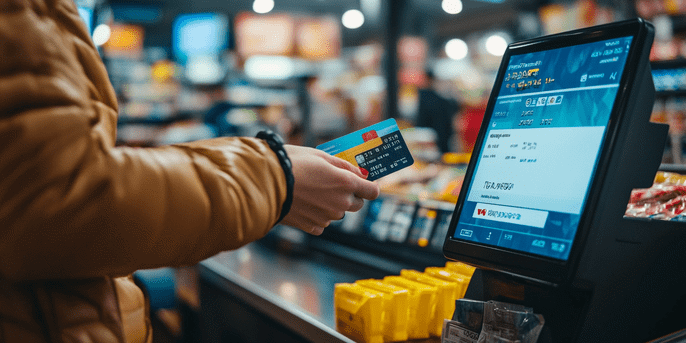Shopping in the UAE is exciting, but counterfeit products can lead to financial loss. Whether buying luxury items or everyday goods, knowing how to spot fake products helps protect your money. The UAE is a shopper’s paradise, but it is also a hotspot for counterfeits. Scammers often target unsuspecting buyers with substandard knockoffs, leaving them frustrated and out of pocket. Follow these 9 smart tips to ensure safe shopping and maximize your savings in UAE’s markets.
Verify the Seller’s Authenticity

Counterfeit sellers often pose as legitimate vendors, making it crucial to verify their authenticity. Many unauthorized sellers operate through online platforms or small retail stalls. These sellers may use fake business names, unreliable contact details, and misleading branding to deceive buyers. To avoid being scammed, always research the seller before making a purchase. A legitimate seller will have verifiable credentials and a history of customer satisfaction. Buying from authorized sellers ensures you receive genuine products, warranty coverage, and after-sales support.
- Check licenses and certifications issued by UAE regulatory bodies to confirm legitimacy. Businesses operating legally will display their trade licenses and comply with local consumer protection laws.
- Read reviews on Noon, Amazon UAE, and Carrefour to understand customer experiences. Previous buyers often highlight whether a seller offers authentic products or counterfeits.
- Avoid sellers with no history or poor ratings as they may be fraudulent. Lack of transparency, negative reviews, and missing product details can signal a high-risk purchase.
Pro Tip: Always choose official brand stores or authorized retailers to guarantee authenticity and safeguard your investment.
Inspect Product Packaging
Counterfeit products often have noticeable flaws in their packaging, making it easier to spot fakes. Authentic brands invest in high-quality materials, precise printing, and security seals to protect their products. Fake products, on the other hand, come in flimsy boxes, have distorted logos, or lack proper labeling. A simple inspection of the packaging can reveal whether a product is genuine or counterfeit. Luxury brands often include RFID chips or serial codes in their packaging for additional security.
- Look for misspellings, faded labels, or incorrect logos on the packaging. Genuine brands pay attention to every detail, while counterfeiters may have noticeable printing or branding errors.
- Genuine products have security seals, QR codes, or holograms that serve as proof of authenticity. If a product is missing these security features or has a broken seal, it is likely fake.
- Compare with an authentic version to spot inconsistencies in design or material. If possible, check the original product in a store and compare packaging textures, fonts, and logos.
Pro Tip: If the packaging seems too cheap, poorly printed, or lacks security features, avoid purchasing the product.
Compare Prices with Market Rates
If a deal seems too good to be true, it probably is. Fraudsters lure buyers with unrealistically low prices, convincing them to purchase fake goods. Luxury brands and high-quality products rarely offer extreme discounts, especially outside official sales seasons. Always compare prices before making a purchase. Trusted retailers may offer discounts, but they will still align with standard pricing trends.
- Cross-check prices on official websites to establish the standard market rate. Manufacturers’ websites list the suggested retail price, helping you identify abnormally low-priced items.
- Extremely low prices on high-end brands are often a sign of counterfeits. If a branded watch, bag, or electronic item is available at a fraction of its usual cost, it is likely fake.
- Use price-tracking tools like SavePlus UAE to find genuine discounts and avoid fraudulent deals. These platforms highlight ongoing promotions from legitimate retailers, ensuring safe shopping.
Pro Tip: Luxury brands rarely offer massive discounts, so always verify prices through official sources.
Check the Product's Serial Number

Many authentic products come with serial numbers that can be verified through official brand websites. This feature ensures the product is original and meets the manufacturer’s standards. Counterfeit goods, however, often lack valid serial numbers or use fake ones that do not match manufacturer records. Serial numbers are particularly useful when purchasing electronics, designer goods, and high-end fashion items.
- Find the serial number on the packaging or the product itself and ensure it is correctly placed. Some brands engrave serial numbers inside products to prevent easy counterfeiting.
- Visit the manufacturer’s website and enter the serial number to verify authenticity. Companies like Apple, Samsung, and Rolex offer verification tools for customers.
- Avoid products without serial numbers, as most authentic brands include them. Fake products often lack this essential detail or display random, invalid codes.
Pro Tip: If a seller refuses to provide a serial number, there is a high chance the product is fake.
Buy from Authorized Retailers and Platforms
Buying from authorized sellers significantly reduces the risk of counterfeit purchases. Official retailers follow strict quality standards, ensuring that all products sold are genuine. Many counterfeiters operate in unregulated markets or social media platforms, making it risky to buy from them. Online shopping platforms with strong customer protection policies can offer safer alternatives.
- Purchase from official stores like Apple UAE, Sephora, or Virgin Megastore to guarantee product authenticity. These brands operate dedicated outlets and official online stores for secure shopping.
- Shop from reliable online platforms like Noon, Namshi, or Sharaf DG, which have strong anti-counterfeit policies. These marketplaces enforce strict seller verification processes to minimize fake listings.
- Physical stores in top malls like Dubai Mall and Mall of the Emirates offer safer shopping experiences compared to street markets. Mall-based retailers are subject to higher regulations and authenticity checks.
Pro Tip: Always request an official invoice for proof of purchase, which also ensures warranty and returns.
Examine the Product's Quality and Build
Counterfeit goods are often made with inferior materials that compromise their quality. Whether it’s clothing, electronics, or accessories, fake products typically feel lighter, weaker, or poorly assembled. Examining the craftsmanship and build quality is a great way to differentiate between real and fake items. Authentic products undergo strict quality checks, whereas counterfeits focus on cost-cutting.
- Check for uneven stitching on clothing, handbags, or footwear, as genuine brands maintain high-quality stitching. Loose threads or misaligned logos indicate poor craftsmanship.
- Inspect for unusual textures and odors in perfumes, cosmetics, and fabrics. Counterfeit perfumes may smell overly strong or contain unknown chemicals.
- Fake electronics feel lighter and flimsier compared to original versions. They may have poor-quality plastic casings, faulty buttons, or missing certification stickers.
Pro Tip: Always inspect product materials carefully and compare them with authentic versions before purchasing.
Verify Payment Methods and Return Policies

Fraudulent sellers often avoid secure payment options and lack clear return policies. Many counterfeit sellers insist on cash transactions or untraceable payment methods to prevent customers from filing disputes. Additionally, fake retailers frequently refuse returns, leaving buyers with low-quality, non-refundable items. Before making a purchase, always check the payment options and the return policy. A legitimate seller will offer multiple secure payment methods and have a customer-friendly refund policy.
- Avoid cash-only transactions, as they offer no buyer protection. Scammers prefer cash payments because they cannot be traced or reversed in case of fraud.
- Check for return and refund policies before purchasing any item. Authentic retailers clearly outline their return policies and provide customers with the option to exchange or refund defective products.
- Genuine retailers accept secure payments, including credit cards, PayPal, and installment plans. Secure transactions provide protection against fraud and allow chargebacks in case of counterfeit purchases.
Pro Tip: If a seller insists on cash payments or refuses to share return policies, reconsider the purchase.
Use UAE Consumer Protection Services
The UAE government actively combats counterfeit goods by implementing strict consumer protection laws. If you suspect a product is fake or encounter fraudulent sellers, you can report them to the authorities. The UAE Consumer Protection Department, along with local economic departments, investigates complaints and takes action against counterfeiters. Being aware of consumer rights can help buyers take immediate steps to rectify fraudulent purchases.
- Report counterfeit products to the UAE Consumer Protection Department through their hotline or online portals. Authorities respond to complaints by inspecting sellers and taking legal action when necessary.
- Call 600-522-225 for complaints related to counterfeit goods and unethical business practices. This hotline provides direct assistance for resolving consumer issues in the UAE.
- Visit Dubai Economy and Abu Dhabi DED websites for further guidance on reporting fraudulent sellers. These platforms offer resources and legal support for victims of counterfeit scams.
Pro Tip: Keep proof of purchase, product details, and communication records to strengthen your case when filing a complaint.
Stay Updated on UAE Anti-Counterfeit Laws
The UAE has some of the strictest anti-counterfeit regulations to protect consumers and brands. These laws ensure that counterfeit sellers face heavy fines, imprisonment, and business shutdowns. Knowing these laws helps buyers make informed decisions and report fraudulent activities effectively. Authorities conduct frequent market inspections to crack down on fake goods and safeguard consumer interests.
- Fines for selling fakes can reach AED 250,000 or more, depending on the severity of the violation. Businesses caught distributing counterfeit products may also face permanent closure.
- Customs seize counterfeit goods to prevent them from entering the UAE market. Imported goods undergo strict screening to detect and confiscate fake items before they reach consumers.
- Follow UAE Federal Customs Authority updates for new regulations and enforcement measures. Keeping up with official guidelines helps buyers understand their rights and avoid counterfeit traps.
Pro Tip: Buying counterfeit goods can also lead to fines or confiscation, so always shop from reliable sources.
Conclusion
Shopping in the UAE can be a rewarding experience if you take the right precautions. By following these 9 expert tips, you can protect yourself from counterfeit products and save money in the long run. Always verify sellers, check product quality, and buy from authorized retailers to ensure authenticity. Stay vigilant and make informed purchases for a safe shopping experience in the UAE.
Enhance your UAE shopping experience with SavePlus—your trusted source for expert advice, exclusive coupons, and unbeatable savings. Shop smart, stay safe, and enjoy the best deals!
FAQ
How can I report counterfeit products in the UAE?
You can report fake products to the UAE Consumer Protection Department by calling 600-522-225 or visiting local economic department websites.
What are the penalties for selling counterfeit goods in the UAE?
Selling fake products can result in fines up to AED 250,000, confiscation of goods, and potential legal action.
Are there specific UAE stores that guarantee authenticity?
Yes, reputable stores include Noon, Amazon UAE, Carrefour, Sharaf DG, and Virgin Megastore.
How do I check if an online seller is legitimate in the UAE?
Look for customer reviews, official licensing, and secure payment options before buying from an online seller.
Can I get a refund if I buy a counterfeit product by mistake?
If purchased from a trusted retailer, you may qualify for a refund. However, independent sellers often refuse refunds for counterfeit goods.






